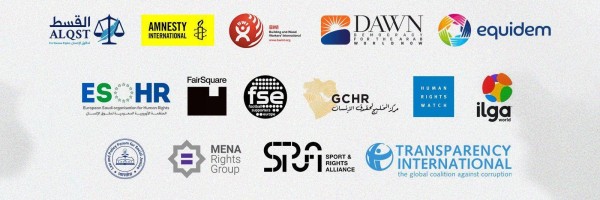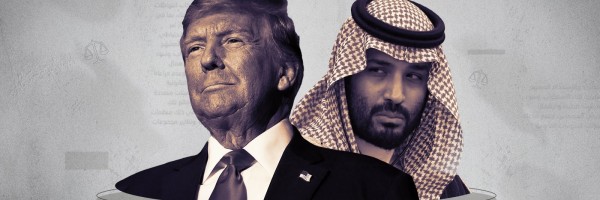In his latest annual report on reprisals presented on 17 September 2024, UN Secretary-General Antonio Guterres drew attention to Saudi human rights defenders Loujain al-Hathloul and Mohammed al-Qahtani, who continue to be subjected to retaliation for their cooperation with UN human rights mechanisms.
The report reiterates for the seventh time the case of Mohammed al-Qahtani, a co-founder of the Saudi Civil and Political Rights Association (ACPRA), who has been arbitrarily detained since 2013. Al-Qahtani was sentenced to ten years in prison on charges relating to his peaceful activism and cooperation with the UN. Since his prison term expired in late 2022, his family have lost all contact with him, and his whereabouts remain unknown. Similarly, Loujain al-Hathloul, a prominent women’s rights activist, remains subject to an illegal travel ban after being released from prison in 2021, an issue that was raised by UN experts earlier this year. Al-Hathloul was imprisoned and tortured for her women’s rights advocacy and cooperation with international bodies, including the Committee on the Elimination of All Forms of Discrimination Against Women and Girls (CEDAW) .
The ongoing reprisals against these two prominent activists highlight Saudi Arabia’s systematic targeting of human rights defenders who seek to collaborate with UN human rights mechanisms, which forms part of a broader crackdown on peaceful activism and dissent. As the report notes, during its latest Universal Periodic Review (UPR), Saudi Arabia rejected a recommendation to halt such reprisals, signalling its explicit and clear disregard for international human rights obligations.
Antonio Guterres calls on those featured in the report, including Saudi Arabia, to “refrain from, prevent and ensure accountability for any acts of intimidation and reprisal for cooperation with the United Nations and to share and build upon good practices on how to prevent and address reprisals for cooperation with the United Nations; and calls upon the international community to ensure that concerted action is taken to protect, support and ensure the meaningful and safe engagement of individuals and groups, including women human rights defenders and peacebuilders, with the United Nations, its representatives and mechanisms in the field of human rights.”
Despite its human rights record, Saudi Arabia continues to attempt to whitewash its image on the global stage. The kingdom was appointed to chair the 69th session of the UN's Commission on the Status of Women (CSW) in 2025, and is a candidate for the UN Human Rights Council (UNHRC), positions that starkly contrast with its domestic repression of civil society.
As Saudi Arabia seeks a seat on the UNHRC, member states must ensure that gross human rights abuses do not go unchecked, and that countries engaging in such practices are not rewarded with prominent roles within the UN.
We therefore urge Saudi Arabia to take immediate action, including:
- Refraining from reprisals against human rights defenders and activists who engage with international mechanisms.
- The unconditional and immediate release of Mohammed al-Qahtani and a disclosure of his current whereabouts.
- The lifting of the illegal travel ban on Loujain al-Hathloul and her family, and an end to all forms of harassment and restrictions on her freedom.




